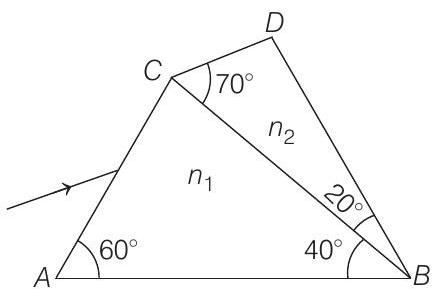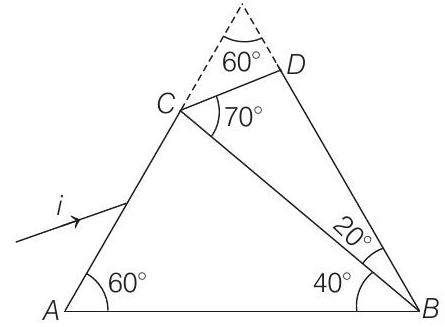Optics 4 Question 21
22. A prism of refractive index
 light according to :
light according to :
where
(1998, 8M)
(a) Calculate the wavelength
(b) For light of wavelength
Show Answer
Answer:
Correct Answer: 22. (a)
(b)
Solution:
Here,
(a) The incident ray will not deviate at
or
(b) The given system is a part of an equilateral prism of prism angle

At minimum deviation,






